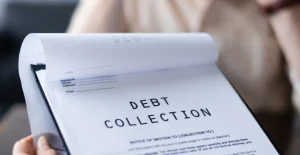California Collections Group Phone Harassment❓
*Is California Collections Group (CCG) calling you?*Stop California Collections Group phone harassment. Do they threaten to take legal action or garnish your wages? Are they making harassing or repeated telephone calls at all hours or several times a day? Are they telling your family and neighbors that you owe a debt? If so, what they are doing is illegal and needs to stop. Debt collection activities include sending letters, making phone calls, and taking legal action to recover unpaid debts. You have the legal right to stop CCG phone harassment. If a collection agency violates the FDCPA, you may be eligible to receive up to 💸$1000.00 in statutory damages, along with covering your attorney fees.
Introduction to Debt Collection
Debt collection is the process by which debt collectors attempt to recover unpaid debts from individuals or businesses. This can involve a range of activities, including sending letters and emails, making phone calls, and taking legal action. Debt collectors like California Collections Group may work on behalf of the original creditor or may purchase debts from creditors and then attempt to collect them. They use various legal frameworks and methods to collect debt, including contacting individuals repeatedly before taking legal action.
Additionally, under the Fair Debt Collection Practices Act, debt collectors cannot pursue mortgage debt that is past due according to the statute of limitations. Whether it’s a credit card debt, medical debt, or a personal loan, debt collectors use various methods to contact debtors and seek repayment. Personal loans, as unsecured debt, can significantly impact your credit score and have specific legal considerations for their collection. Auto loans, being secured debts, can result in repossession if not repaid, highlighting the serious nature of these financial obligations. Understanding the debt collection process can help you navigate interactions with debt collectors more effectively.
Understanding the Basics of Debt Collection

California Collections Group can feel overwhelming, but understanding how it works is essential for protecting yourself. Debt collectors, especially third-party agencies, must follow the rules outlined in the Fair Debt Collection Practices Act (FDCPA)—a federal law designed to prevent harassment, deception, and unfair tactics. Under the FDCPA, collectors cannot call before 8 a.m. or after 9 p.m., use abusive language, or discuss your debt with others. Consumers have the legal right to request that debt collectors stop calling and instead communicate in writing. California also provides additional protections through its own state laws, reinforcing your rights against aggressive collection efforts. It’s crucial to ensure debt collectors are licensed and provide their registration number when contacted.
Credit Impact, Legal Risks, and How to Respond
Unpaid debts can lead to serious consequences such as lawsuits, wage garnishment, and a significant drop in your credit score. Collections accounts can stay on your credit report for up to seven years, making it harder to qualify for loans or favorable interest rates. Even if you cannot pay immediately, the debt legally remains until resolved. Negotiation is often possible, and collectors may agree to a lower settlement. Sending dispute letters or cease and desist letters via certified mail is a smart way to document communications and assert your rights. Understanding the statute of limitations is also important—it determines whether a collector can still legally sue you. By knowing your rights and responding strategically, you can reduce the pressure and protect your financial future.
Is California Collections Group a Scam?
According to the Better Business Bureau website, California Collections Group has been in business for 10 years.
While debt collectors cannot sue for time-barred debts, they are still permitted to report these debts to credit reporting agencies.
➤ California Collections Group Better Business Bureau
Who is California Collections Group Debt Collection Agency?
California Collections Group is a third-party debt collector located in Los Angeles, California.
Debt buyers purchase debts from original creditors and then attempt to collect them, adhering to state laws like California’s Rosenthal Fair Debt Collection Practices Act.
- 📌 Address: 2202 S Figueroa St Ste 631, Los Angeles, CA 90007-2049
- 📲 Phone: (213) 749-1563
California Collections Group Collection Tactics


If California Collections Group engages in any of the following tactics, you may have a case:
- 👉 Using profanity or abusive language
- 👉 Calling you before 8:00 a.m. or after 9:00 p.m.
- 👉 Calling you multiple times per week. Debt collectors are prohibited from calling more than seven times in that period.
- 👉 Talking to others about your debt
- 👉 Calling your workplace
- 👉 Threatening to sue you, harm you, or destroy your credit
- 👉 Telling you or anyone else that you’ve committed a crime
- 👉 Calling repeatedly for the wrong person
- 👉 Failing to notify you of your right to dispute the debt. The period starts from the original date of delinquency when determining how long negative items can remain on your credit report.
- 👉 Trying to collect more than legally allowed
- 👉 Making repeated calls related to the same issue, particularly if these calls are intended to annoy or harass the consumer
California Collections Group Phone Numbers
☎️ 213-749-1563, 310-474-0175, (213) 749-1563, (310) 474-0175, 2137491563, 3104740175
If the answer is yes, then you are receiving calls from a known CCG number. You may be a victim of CCG phone harassment. The list above is not all the numbers that CCG uses. The calls can be from a different number, and it still may be California Collections Group calling you. Under the FDCPA, while there are strict regulations on the timing and nature of phone calls from debt collectors, they are allowed to send emails and text messages at any time. Contact our office right away so we can start the process to stop CCG from calling you illegally. Above all, no one should live with harassment!
Debt Collection Laws
Debt collection laws vary by state and province, but most jurisdictions have laws that regulate debt collection practices. These laws may include provisions related to the number of times debt collectors can contact individuals, the times of day they can make phone calls, and the information they must provide to consumers. For example, debt collectors are generally prohibited from calling you before 8:00 a.m. or after 9:00 p.m.
Understanding the specific debt collection laws in your area can help you identify when a debt collector is acting outside the bounds of the law and take steps to address it. You can also negotiate with debt collectors to set up a payment plan if you are unable to pay the full amount upfront. Additionally, the Fair Debt Collection Practices Act (FDCPA) addresses abusive methods that debt collectors use to collect debts, such as harassment and false claims, emphasizing the importance of maintaining accurate records and exercising your rights against wrongful debt collection practices.
Overview of Debt Collection Regulations


In the United States, the FDCPA is the primary federal law that regulates debt collection practices. The law prohibits debt collectors like California Collections Group from engaging in abusive and unfair practices, including harassment, deception, and unfair actions. Debt collectors are also required to provide certain information to consumers, including the amount of the debt, the name of the creditor, and the consumer’s rights under the law. In California, the Rosenthal Fair Debt Collection Practices Act provides additional protections for consumers, including the right to sue debt collectors who violate the law. Debt collectors must be licensed and provide their licensing number when they contact you. These rules help ensure fair, transparent practices that protect consumers from stress and financial harm.
Fair Debt Collection Practices
The Fair Debt Collection Practices Act (FDCPA) is a crucial federal law designed to regulate debt collection practices and protect consumers from abusive, deceptive, and unfair actions by debt collectors. This law applies specifically to third-party debt collectors, such as collection agencies and debt buyers, but not to original creditors like credit card companies or mortgage providers.
Under the FDCPA, debt collectors must adhere to fair debt collection practices. This includes providing written verification of the debt, disclosing the amount owed, and informing consumers of their rights. For instance, within five days of initial contact, debt collectors are required to send a validation notice that includes the amount of the debt, the name of the creditor, and instructions on how to dispute the debt.
The FDCPA strictly prohibits debt collectors from using profane language, making threats, or engaging in harassment, such as repeated phone calls or contacting consumers at inconvenient times. Additionally, debt collectors must comply with state laws, including California’s Rosenthal Fair Debt Collection Practices Act, which offers further protections.
Consumers have the right to dispute a debt in writing within 30 days of receiving the validation notice. During this period, debt collectors like California Collections Group must cease all collection activities until the dispute is resolved. The FDCPA also forbids debt collectors from reporting false information to credit reporting companies or attempting to collect a debt that is not owed.
Understanding these protections can help consumers recognize when a debt collector is violating the law and take appropriate action to safeguard their rights.
Consumer Rights and Debt Collectors


Consumers have certain rights when dealing with debt collectors, including the right to dispute debts, stop collection calls, and sue debt collectors who violate the law. It’s essential for consumers to understand their rights and to know how to protect themselves from abusive and unfair debt collection practices. For instance, if you believe a debt collector is harassing you, you can request in writing that they stop contacting you. Additionally, if a debt collector violates your rights, you may be able to sue them for damages. Ignoring a debt collector can sometimes lead to a lawsuit, so it’s important to address the issue promptly. Creditors can report debts to credit bureaus, which may lower your credit score. Knowing your rights helps you take control and avoid harassment.
Creditor Harassment Prevention
Creditor harassment is a serious issue that can cause significant stress and financial harm. Consumers need to take proactive steps to prevent it. One effective strategy is to keep accurate records of all debt collection activities, including dates, times, and details of phone calls, letters, and other communications.
Understanding your rights under the FDCPA and state laws, such as California’s Rosenthal Fair Debt Collection Practices Act, is crucial. These laws provide robust protections against abusive and unfair debt collection practices. If you experience harassment, you can send a written request to the debt collector, asking them to cease all contact. Additionally, you can file a complaint with the (CFPB) or your state attorney general’s office.
Debt collectors are prohibited from contacting you at work, home, or other places where you may be present if you request them to stop. You have the right to dispute a debt and request verification from the debt collector, and they must comply with these requests.
By documenting all interactions, understanding your rights, and taking action to report harassment, you can protect yourself from creditor harassment and ensure that debt collectors adhere to fair and legal practices.
- Is CCG a scam❓
No, California Collections Group has been in business for 10 years. - Can California Collections Group garnish my wages❓
Yes, CCG can garnish your wages on a Federal Student loan or if they obtain a judgment from the courts. Making a partial payment on a debt can potentially restart the statute of limitations for debt collection. - Can CCG sue me❓
Yes, CCG can sue you so long as the debt is within the statute of limitations - Can CCG report my debt to the collection bureaus❓
Yes, Debt collectors can legally report the collection account to your credit report. - Can CCG arrest me❓
No, CCG cannot arrest you. Debt collection is a civil matter, not a criminal offense.
About Us


Consumer Rights Law Firm, PLLC is a law firm that specializes in helping clients who are facing harassment from debt collectors in any form, including telephone communication. Rather than suffer alone, contact our office to begin the process to stop the California Collections Group harassment. Individuals can report debt collectors to a state agency when violations of consumer protection laws occur. Our office has been assisting consumers since 2010. We have an A+ rating with the Better Business Bureau.
Consumer Rights Law Firm Better Business Bureau
If you want to learn how to protect yourself and stop harassment from California Collections Group, call us at 📲855-385-8182 or visit www.consumerlawfirmcenter.com for immediate help.
Success Stories
“If you’re facing harassment, I strongly recommend contacting the Consumer Rights Law Firm. They were very professional and straightforward about my rights”.
Sending a cease-and-desist letter can be an effective way to stop harassment from debt collectors.
“I had the pleasure of dealing with Consumer Rights Law Firm PLLC on 2 different occasions. The staff were very courteous and helpful, and they were familiar with the Collection agencies in question, and the harassment calls stopped. They even compensated me. I would recommend this company to anyone going through this type of harassment, a very satisfied customer”.
“Because of a lie from a third-party debt collector that threatened me financially, I nearly made the mistake of paying the debt collector money I couldn’t afford. The people here were friendly, knowledgeable, and settled my case quickly. THANK YOU SO MUCH!!”
Check out the links below for more information🔗:




